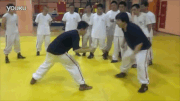Seminars are almost completely just scams
Having attended somewhere between 80-100 martial arts seminars over the last 38 years, I have to disagree with that. I still practice and use techniques and principles that I learned in seminars decades ago.
If the seminar is teaching or working on something that you are already doing in your regular training, perhaps there is little point in attending the seminar. It isn’t teaching you anything new and merely provides a few new training partners for a limited period of time. That itself can be beneficial, but is of limited benefit due to the brief time spent together.
If such a seminar gave you a significantly better way to do what you had already been training, and you were able to incorporate that method into your training going forward, then it might be a beneficial seminar. But if your regular training was really so inferior then maybe the real issue is you need a better teacher for your ongoing training. I suppose a seminar could point out that uncomfortable truth to you. At any rate, any changes to the standard training moving forward would need to have the regular instructor onboard with the plan.
I am having difficulty seeing any benefit in a seminar that teaches you something that you already know and train skillfully.
I am having difficulty seeing any benefit in a seminar that teaches you something new that will not be trained and maintained moving forward, and that does not contain an ongoing relationship with a skilled teacher who can help you make corrections and develop that skill over time. Because these things need more than a weekend or a week of “teaching” before you have it within your skillset.
Sometimes a seminar gives you benefits that are less obvious and less tangible. The most obvious would be in meeting new people and the possibility of new friendships and new training partners. The second would be in simply seeing how other people go about their training which can broaden one’s horizons. These things may lead to an increase in skill over time, but may not be directly as a result of the physical training from the seminar itself.
As you might expect from my previous posts, I have opinions on the subject.
Your last paragraph, I’m in full agreement with. I’ve been to a number of seminars where the only direct benefits I got were the fun of working out, meeting new friends, and getting some insight into how other people train.
I’ve also been to a number of seminars that I got significant direct benefit from. Of course, I still had to train what I learned in the weeks and months and years after the seminar.
To address your concerns about why you couldn’t just learn the same things in your regular school, I have a few answers.
The first scenario is one where the art you are training in is new to an area and there aren’t a lot of highly qualified instructors around.
When I started training ninjutsu, there were perhaps half a dozen black belts in the United States and none of them lived less than an 8 hour drive from where I did. So we had a small club that would bring in one of those black belts for a seminar every few months, and in-between we would practice whatever we had learned.
When I started training BJJ, there were some really good black belt instructors in the United States, but they mostly lived on the West Coast. I was in Ohio, where we had maybe one purple belt and a handful of blue belts. You better believe I made it to every BJJ seminar that I could and practiced everything I learned.
So, now BJJ has grown to the point where I’m one of about 20 black belts in my local metro area. Why would I go to a seminar now?
Well the first reason, as you allude to, is that sometimes the seminar instructor is just more skilled, more knowledgeable, or a better teacher than I am or my coach is. Despite what you seem to imply in your second paragraph, that doesn’t mean that my school is somehow deficient. It’s just that there are levels to this stuff. Some people are just at the top of their field worldwide and have information and insights and training methods that you won’t necessarily find in most schools. We get experience with these instructors and bring it back to improve our daily training.
Another reason can be just to get a different perspective on training and techniques. Every BJJ instructor I’ve worked with has their own individual way of moving and interpreting the art. Even my peers who trained at the same gym with me all have their own personal style which is different from mine and from each other. Sometimes having the chance to train with someone who comes from a different background will trigger “aha!” moments for me.
Sometimes the instructor might not be more knowledgeable overall than my coach or my peers or other local instructors, but they are especially knowledgeable in one particular area that I want to learn more about.
I will say that my preference is strongly in favor of seminars where the instructor goes deep into a limited area of study, focusing on how to make things really work, as compared to seminars where the instructor just dumps a ton of random techniques or combinations on the students with no effort to help them understand the information, retain it, or make it functional. I’ve been to seminars with some famous instructors that definitely fell into the latter category.


